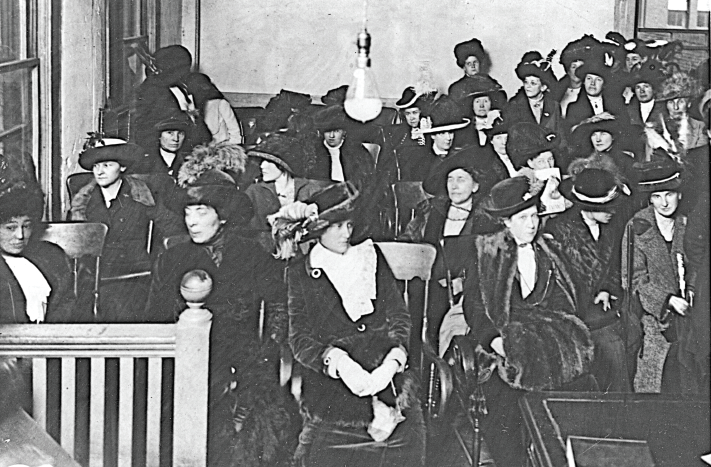Women Who Inspire Us: Marie Equi, M.D.

A rebellious soul. A real friend of the have-nots of this world. The stormy petrel of the Northwest. This is how friends described Marie Equi, M.D. Her fiery temperament and commitment to justice make her one of Oregon's most impressive historical figures.
Dr. Equi was one of Oregon's first women physicians –she earned her M.D. at the University of Oregon Medical School (now OHSU) in 1903. She was also the first publicly-known lesbian on the west coast, and an outspoken advocate for women's rights.
Born and raised in Massachusetts, Dr. Equi escaped a life working in a textile mill by traveling west in 1890. She worked a homestead in The Dalles with her first long-term partner, Bessie Holcomb, while studying for medical school. After graduating, Dr. Equi set up a practice in Portland, mainly serving working class people.
She was very sensitive to the health needs and rights of women and children, gaining a reputation as an expert diagnostician and tireless advocate for reproductive choice. She was a leading figure in public health campaigns and received a commendation from the U.S. Army for her efforts.
In 1905, Dr. Equi began a relationship with Harriet Speckart. The two adopted an infant girl, Mary, in 1915. Though their relationship ended a few years later, the two were close and raised their daughter together until Speckart's death in 1927.
As a champion of justice, Dr. Equi fought to secure reproductive rights for women. When Margaret Sanger visited Portland in 1916, Sanger and Dr. Equi were arrested for defending three men caught distributing Sanger's birth control pamphlets. The incident sparked their friendship, and Dr. Equi revised Sanger's pamphlet to make it more medically accurate.
Many people saw the campaigns for birth control, suffrage, and improvement in working conditions as separate issues, but not Dr. Equi. Instead, she saw them all as part of the larger class struggle, the end of which would be the freedom, dignity, and improved health for working women and their families.
After a heart attack in 1930, Dr. Equi lived a quiet life. She died in 1952 and was buried alongside Speckart in Portland.
Read more news stories/womens-health/news-womens-health-monthly